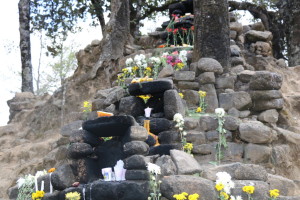 Throughout the history of human life on this planet, Sacred Places have been identified and revered for their spiritual, ecological and cultural importance. Our relationship to these places has nourished our evolution and been integral in shaping cosmological beliefs. As the movement into our modern civilization has brought us from the sacred to the profane, our relationship to these places has shifted from reverence of its living being towards commodification of its material resources. The world’s remaining Indigenous peoples have been bearing the weight for generations of resisting this endless tide of extractive impulses to both maintain the places and the sacred relationships to them that extend back through millenia.
Throughout the history of human life on this planet, Sacred Places have been identified and revered for their spiritual, ecological and cultural importance. Our relationship to these places has nourished our evolution and been integral in shaping cosmological beliefs. As the movement into our modern civilization has brought us from the sacred to the profane, our relationship to these places has shifted from reverence of its living being towards commodification of its material resources. The world’s remaining Indigenous peoples have been bearing the weight for generations of resisting this endless tide of extractive impulses to both maintain the places and the sacred relationships to them that extend back through millenia.
Our efforts have brought us to this forefront many times, including the effort in Sarayaku, Ecuador to resist oil extraction and in Guatemala where access and protection to these sites are often under threat. The good news is, as Christopher McLeod points out in the article below, resistance to this exploitation is growing and we have an opportunity to turn back to those that have sustained the relationship to Sacred Places to re-shape the role that humans serve upon this earth, and in doing so, better realize our collective potential. This path forward requires supporting both the sacred places and the people that best protect and honor them, so that we may learn to reframe the way we “develop” with the earth, beginning with an honoring and recognition of our sacred relationships.
Why Sacred Places Should Matter, Even to Business Folks
- KAJIB’ KAWOQ ~ Today’s Ch’umil - November 22, 2025
- Mayan Ajq’ij Elder Visiting Santa Fe, NM Nov 28-Dec 10, 2025 - November 17, 2025
- OXIB’ KAN ~ Today’s Ch’umil - November 8, 2025

